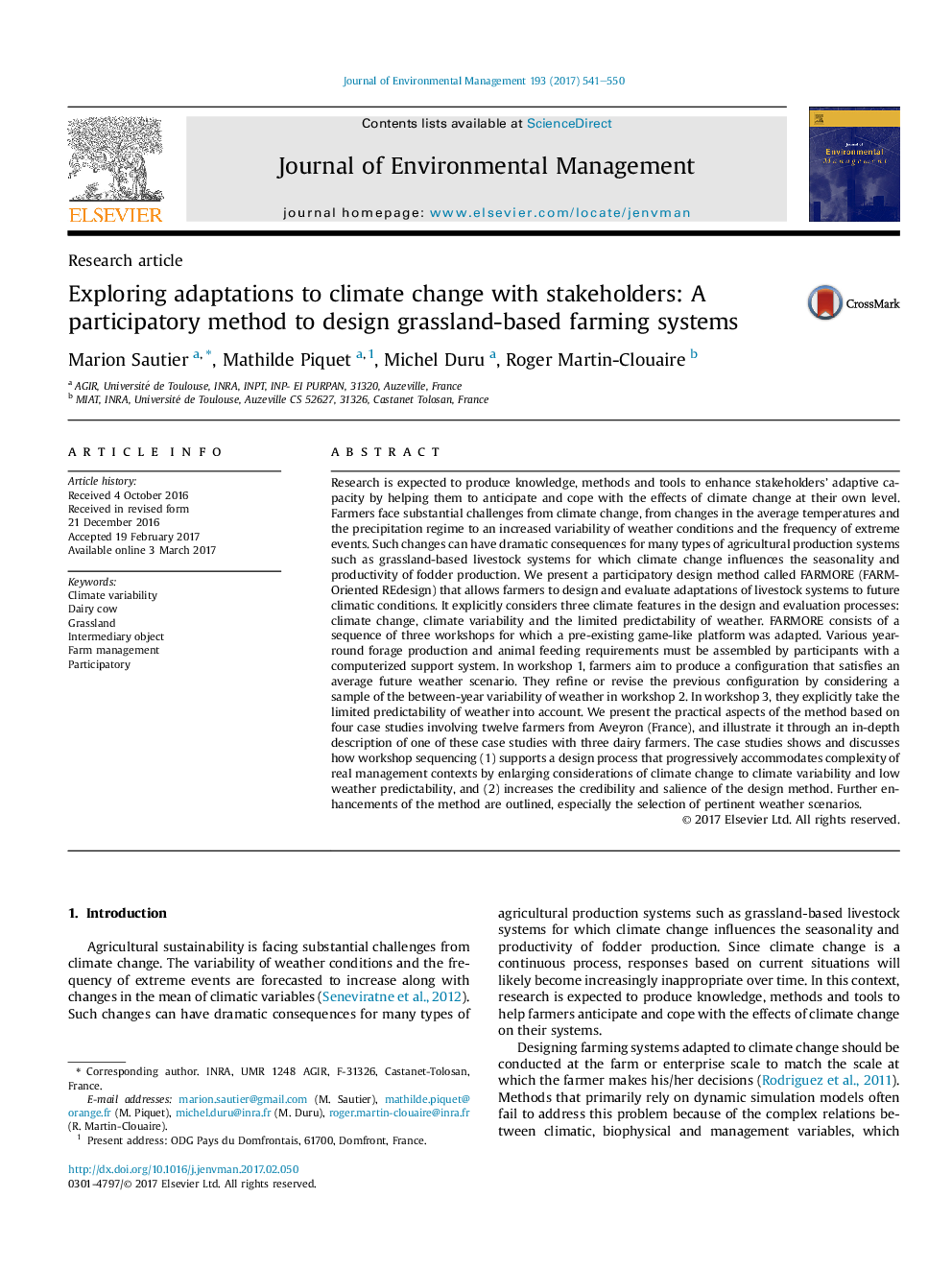| کد مقاله | کد نشریه | سال انتشار | مقاله انگلیسی | نسخه تمام متن |
|---|---|---|---|---|
| 5116857 | 1485222 | 2017 | 10 صفحه PDF | دانلود رایگان |
- We present a participatory method to design livestock systems adapted to climate change.
- The method conjointly deals with climate change, climate variability and low weather predictability.
- Workshop sequencing enables to progressively refine the context in which farmers operate.
- Farmers can explore the viability of real farming systems under future climate conditions.
- Options exist to adapt to IPCC A1B climate change scenario.
Research is expected to produce knowledge, methods and tools to enhance stakeholders' adaptive capacity by helping them to anticipate and cope with the effects of climate change at their own level. Farmers face substantial challenges from climate change, from changes in the average temperatures and the precipitation regime to an increased variability of weather conditions and the frequency of extreme events. Such changes can have dramatic consequences for many types of agricultural production systems such as grassland-based livestock systems for which climate change influences the seasonality and productivity of fodder production. We present a participatory design method called FARMORE (FARM-Oriented REdesign) that allows farmers to design and evaluate adaptations of livestock systems to future climatic conditions. It explicitly considers three climate features in the design and evaluation processes: climate change, climate variability and the limited predictability of weather. FARMORE consists of a sequence of three workshops for which a pre-existing game-like platform was adapted. Various year-round forage production and animal feeding requirements must be assembled by participants with a computerized support system. In workshop 1, farmers aim to produce a configuration that satisfies an average future weather scenario. They refine or revise the previous configuration by considering a sample of the between-year variability of weather in workshop 2. In workshop 3, they explicitly take the limited predictability of weather into account. We present the practical aspects of the method based on four case studies involving twelve farmers from Aveyron (France), and illustrate it through an in-depth description of one of these case studies with three dairy farmers. The case studies shows and discusses how workshop sequencing (1) supports a design process that progressively accommodates complexity of real management contexts by enlarging considerations of climate change to climate variability and low weather predictability, and (2) increases the credibility and salience of the design method. Further enhancements of the method are outlined, especially the selection of pertinent weather scenarios.
Journal: Journal of Environmental Management - Volume 193, 15 May 2017, Pages 541-550
